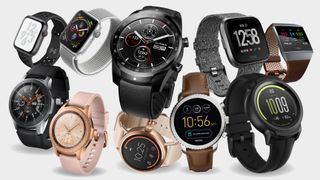Can Google make a big difference, really, with acquisition of Fitbit for $2.1b?
Will the search engine giant be able to save WearOS or gain a foothold in growing wearable health care industry

What is Google trying to do with the purchase of Fitbit for $2.1b? Will it be similar to its previous acquisitions like Motorola, Nest or HTC? Google’s previous acquisitions have been a failure so far.
Google acquired Motorola for $12.5b in 2011 and later sold it to Lenovo for $2.91b in 2014. In that transaction, Google gained access to about 25,000 mobile patents and now licenses it to Lenovo.
In 2014, Google acquired Nest for $3.2b and they were not able to differentiate from the crowd.
In 2018, Google purchased HTC's smartphone division for $1.1b to strengthen its Pixel smartphones with HTC’s intellectual property but Pixel phones can't be considered mainstream with a less than 1% market share.
With the acquisitions of Motorola, HTC and Nest and a strong hardware push, Google has not yet been successful at selling consumer devices.
- Healthcare awareness among consumers drive wearables market in MEA
- Huawei gears up to fully open its Huawei Mobile Services to global developers
- UAE consumers can experience 10Gbps speed and 1ms latency on 5G network in 2020
Will Fitbit acquisition make a difference?
By purchasing Fitbit, Google now has access to smartwatch patents and data to take on Apple in the wearables health care segment. Apple is currently the king in the wearables category and gained popularity with the acceptance of health care apps.
For Google to gain traction in the wearables category, it needs to have its own smartwatch as none of the other top phone makers are using Wear OS, except Fossil. Google paid $40m to acquire smartwatch tech from Fossil this year.
Are you a pro? Subscribe to our newsletter
Sign up to the TechRadar Pro newsletter to get all the top news, opinion, features and guidance your business needs to succeed!
When WearOS launched, Huawei, Motorola, LG, Sony and Asus launched smartwatches but couldn't really gain much traction.
According to IDC, smartwatch is the second-fastest-growing category after ear-wear in the wearables category until 2023 forecast period. Watches are forecasted to grow from 91.8 million units in 2019 to 131.6 million in 2023 with a five-year annual rate of 9.4%.
Apple is expected to lead the way, capturing a 25.9% share of all watches in 2023. Beyond Apple will be a variety of brands running different operating systems, including Android, WearOS, Huawei’s Lite OS, Tizen and others.
Fitbit fits in well for Google in health care space
Now, you know why Google is so serious about the growing health care space and to improve its health-related search results. Fitbit fits in well for Google.
From Fitbit’s point of view, it is difficult to sustain in the market with a standalone product when the market is undergoing a cutthroat competition. Even, the future remains unclear for smaller brands as they are competing with brands with an ecosystem of devices.
There were many acquisitions and mergers among smaller players in the wearables category such as Fitbit buying Pebble, Fossil buying Misfit. Even Microsoft exited the wearables business after its Microsoft Band and Microsoft Band 2. It is not easy to stay afloat in the wearables category.
As big brands are sitting on with a lot of health-related data from smartwatches, how the future is going to be.
Google has said that it will never sell personal data to anyone and Fitbit’s health and wellness data will not be used for Google ads. Do you believe it?
Insurance companies, in future, will definitely avail this data from smartwatch brands to offer tailored solutions and prices depending on their lifestyle and fitness levels.
Most Popular

